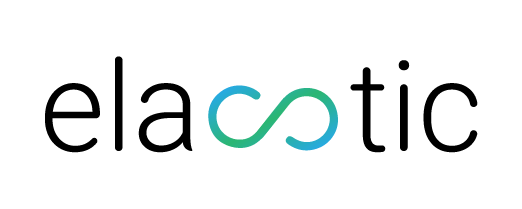The First IEEE/IFIP WebAssembly, Cloud and Edge: Shaping the Future of Computing (WACE) Workshop
The Bytecode Alliance in partnership with Ghent University - imec is pleased to organize and host the IEEE/IFIP WACE workshop colocated with the IEEE/IFIP Network Operations and Management Symposium (NOMS), 12-16 May 2025 in Honolulu, Hawaii, USA. We invite submission of papers and welcome presenters and participants to join us at the event.
Submission and Important Dates
- Submission deadline: 31 January 2025
- Acceptance Notification: 28 February 2025
- Camera-ready deadline: 14 March 2025
- Submission site: Online via JEMS
The workshop Call for Papers is also available in PDF form.
Conference Organizers

Merlijn Sebrechts
Ghent University - imecGeneral Co-chair

Bailey Hayes
CosmonicGeneral Co-chair

José Santos
Ghent University - imecTPC Co-chair

David Bryant
Bytecode AllianceTPC Co-chair
Technical Program Committee
- Carlo Centofanti, University of L’Aquila, Italy
- Chen Wang, IBM T.J. Watson Research Center, USA
- Davide Borsatti, University of Bologna, Italy
- Dhouha Ayed, Thales, France
- Eddy Truyen, KU Leuven, Belgium
- Eduard Marin Fabregas, Telefonica Research, Spain
- Filip De Turck, Ghent University - imec, Belgium
- Jaime Galàn-Jimènez, University of Extremadura, Spain
- Louis Cailliot, Thales, France
- Luiz F. Bittencourt, University of Campinas, Brazil
- Marco Zambianco, FBK, Italy
- Mats Brorsson, University of Luxembourg, Luxembourg
- Michiel Van Kenhove, Ghent University - imec, Belgium
- Mohamed Faten Zhani, ISITCom, University of Sousse, Tunisia
- Mays Al-Naday, University of Essex, Colchester, UK
- Peini Liu, Barcelona Supercomputing Center, Spain
- Roberto Rodrigues Filho, University of Campinas, Brazil
- Quentin Michaud, Thales and Télécom SudParis – Institut Polytechnique de Paris, France
- Tim Wauters, Ghent University - imec, Belgium
Workshop Description
The edge-cloud continuum is set to revolutionize service deployment and management. With the advent of advanced technologies such as WebAssembly, it is possible to run services efficiently across all devices, machines, and operating systems with low startup latency, minimal runtime overhead, and high levels of isolation. As a result, these modern technologies are revolutionizing all layers of the cloud-edge continuum, from serverless functions in the cloud, over in-network execution and edge computing, to true IoT devices and micro-controllers.
The WACE Workshop will address critical technical issues at the intersection of modern technologies such as WebAssembly and the cloud-edge continuum. Key research areas include:
- Orchestrating WebAssembly workloads: The deployment, distribution and management of WebAssembly workloads, including management of serverless WebAssembly functions, scheduling of WebAssembly workloads over heterogeneous fog networks, integrating WebAssembly workloads in existing orchestration platforms, and novel WebAssembly-native orchestrators.
- WebAssembly for in-network execution: Leverage WebAssembly for distributing, executing and managing Virtual Network Functions (VNFs) within modern cloud infrastructures. VNFs can benefit from improved performance, security, and isolation, enabling seamless deployment and execution of network functions closer to the edge by using WebAssembly.
- Security and Isolation of cloud-edge workloads: Novel technologies for workload isolation, including hardware isolation such as secure enclaves, Intel SGX and Arm TrustZone. Containerization platforms such as MicroVMs, WebAssembly components and Docker containers. Capability-based access control such as WebAssembly System Interface.
- Workload management on constrained devices and alternative architectures: Novel methodologies for optimizing workload performance on devices with limited computational resources, power, and memory. This includes lightweight containerization, efficient resource allocation, adaptive scheduling, and energy-aware computing strategies.
- Full-lifecycle management of services in the edge-cloud continuum: Comprehensive strategies for managing services throughout their lifecycle, from deployment to maintenance and decommissioning, across the edge-cloud continuum. This includes continuous integration and delivery (CI/CD) pipelines, automated scaling, monitoring and diagnostics, service orchestration, and lifecycle policies for hybrid and multi-cloud environments.
In summary, the WACE workshop will explore novel practices and methodologies in the Cloud and Edge Computing domains, covering cutting-edge topics aligned with current academic and industry trends. This workshop is particularly relevant to the NOMS community due to its interdisciplinary approach, which bridges best practices from both industry and academic partners. Attendees will gain practical insights and learn about real-world applications directly applicable to their work.
Topics of Interest (but not limited to)
- WebAssembly and Edge Technologies
- Communication Protocols & Middleware
- Edge-Cloud Continuum
- Network Function Virtualization (NFV)
- Software-Defined Networking (SDN)
- Workload Management
- Microcontrollers
- Alternative architectures (e.g., RiscV, ARM)
- Resource Management & Orchestration – Serverless workloads
- Life-cycle management
- Security and Isolation approaches
- Constrained Edge devices
- Quality of Service/Experience Management
- Centralized, Hierarchical, Federated or Distributed Management paradigms
Author Instructions
Authors are invited to submit original contributions to the workshop that are written in English and that have not been published or submitted for publication elsewhere. Workshop papers must be submitted through EDAS as PDFs using the IEEE conference double-column format style. Style templates can be found here. A NOMS workshop paper must not exceed six pages (excluding references).
All submitted papers will be peer-reviewed based on their originality, significance, technical soundness, and relevance to the workshop’s themes. For accepted papers, at least one author is expected to register and present the paper in person at the workshop. Accepted and presented papers will be published in the conference proceedings as well as in the IEEE Xplore and IFIP digital libraries.


